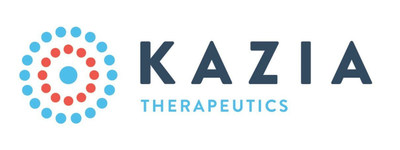Kazia Therapeutics and the Hebrew University of Jerusalem Receives a Grant from The Michael J. Fox Foundation to Evaluate the Therapeutic Potential of Paxalisib as a Treatment for Parkinson's Disease
Kazia Therapeutics (NASDAQ: KZIA) has received a research grant from The Michael J. Fox Foundation for Parkinson's Research to study paxalisib as a potential treatment for Parkinson's disease (PD). The research will be conducted in collaboration with The Hebrew University of Jerusalem at Professor Ronit Sharon's lab.
The study will focus on evaluating paxalisib, a unique blood-brain barrier-penetrating PI3K inhibitor, through preclinical studies assessing mouse survival, motor and non-motor performances, and various disease biomarkers. The research aims to establish a connection between PD pathophysiology and paxalisib, particularly focusing on its potential to inhibit AKT phosphorylation reaction of α-SynA53T, a protein whose overexpression is associated with Parkinson's disease.
The research builds upon preliminary findings that highlight the role of the PI3K/AKT/mTORC pathway in PD pathogenesis, suggesting paxalisib's potential therapeutic application in addressing underlying disease mechanisms.
Kazia Therapeutics (NASDAQ: KZIA) ha ricevuto un finanziamento per la ricerca dalla Michael J. Fox Foundation for Parkinson's Research per studiare paxalisib come potenziale trattamento per il morbo di Parkinson (PD). La ricerca sarà condotta in collaborazione con l'Università Ebraica di Gerusalemme presso il laboratorio della Professoressa Ronit Sharon.
Lo studio si concentrerà sulla valutazione di paxalisib, un inibitore PI3K unico in grado di penetrare la barriera emato-encefalica, attraverso studi preclinici che valuteranno la sopravvivenza dei topi, le prestazioni motorie e non motorie e vari biomarcatori della malattia. La ricerca mira a stabilire un collegamento tra la fisiopatologia del PD e paxalisib, con particolare attenzione alla sua potenzialità di inibire la reazione di fosforilazione di AKT di α-SynA53T, una proteina la cui sovraespressione è associata al morbo di Parkinson.
La ricerca si basa su risultati preliminari che evidenziano il ruolo della via PI3K/AKT/mTORC nella patogenesi del PD, suggerendo l'applicazione terapeutica potenziale di paxalisib nel trattare i meccanismi sottostanti della malattia.
Kazia Therapeutics (NASDAQ: KZIA) ha recibido una subvención de investigación de la Michael J. Fox Foundation for Parkinson's Research para estudiar paxalisib como un posible tratamiento para la enfermedad de Parkinson (PD). La investigación se llevará a cabo en colaboración con la Universidad Hebrea de Jerusalén en el laboratorio de la Profesora Ronit Sharon.
El estudio se centrará en evaluar paxalisib, un inhibidor de PI3K único que penetra la barrera hematoencefálica, a través de estudios preclínicos que evaluarán la supervivencia de ratones, el rendimiento motor y no motor, y varios biomarcadores de la enfermedad. La investigación tiene como objetivo establecer una conexión entre la fisiopatología de la PD y paxalisib, enfocándose particularmente en su potencial para inhibir la reacción de fosforilación de AKT de α-SynA53T, una proteína cuya sobreexpresión está asociada con la enfermedad de Parkinson.
La investigación se basa en hallazgos preliminares que resaltan el papel de la vía PI3K/AKT/mTORC en la patogénesis de la PD, sugiriendo la posible aplicación terapéutica de paxalisib para abordar los mecanismos subyacentes de la enfermedad.
카지아 테라퓨틱스 (NASDAQ: KZIA)는 파킨슨병(PD) 치료의 잠재력을 가진 파칼리시브를 연구하기 위해 마이클 J. 폭스 재단으로부터 연구 보조금을 받았습니다. 이 연구는 예루살렘 히브리 대학교의 로니트 샤론 교수의 연구실과 협력하여 진행됩니다.
이 연구는 혈액-뇌 장벽을 침투하는 독특한 PI3K 억제제인 파칼리시브를 평가하는 데 중점을 두며, 쥐의 생존율, 운동 및 비운동 성능, 다양한 질병 바이오마커를 평가하는 전임상 연구를 포함합니다. 연구의 목적은 PD의 병리생리학과 파칼리시브 간의 연결 고리를 설정하는 것이며, 특히 파킨슨병과 관련된 단백질인 α-SynA53T의 AKT 인산화 반응을 억제하는 잠재력에 중점을 두고 있습니다.
이 연구는 PD 병인론에서 PI3K/AKT/mTORC 경로의 역할을 강조하는 초기 발견을 바탕으로 하며, 질병의 근본적인 메커니즘을 다루기 위한 파칼리시브의 잠재적 치료 응용 가능성을 제안합니다.
Kazia Therapeutics (NASDAQ: KZIA) a reçu une subvention de recherche de la Michael J. Fox Foundation for Parkinson's Research pour étudier paxalisib en tant que traitement potentiel de la maladie de Parkinson (PD). La recherche sera menée en collaboration avec l'Université hébraïque de Jérusalem dans le laboratoire de la Professeure Ronit Sharon.
Cette étude se concentrera sur l'évaluation de paxalisib, un inhibiteur PI3K unique capable de traverser la barrière hémato-encéphalique, à travers des études précliniques évaluant la survie des souris, les performances motrices et non motrices, ainsi que divers biomarqueurs de la maladie. La recherche vise à établir un lien entre la physiopathologie de la PD et paxalisib, en se concentrant particulièrement sur son potentiel à inhiber la réaction de phosphorylation de l'AKT de α-SynA53T, une protéine dont la surexpression est associée à la maladie de Parkinson.
La recherche s'appuie sur des résultats préliminaires qui mettent en évidence le rôle de la voie PI3K/AKT/mTORC dans la pathogénie de la PD, suggérant l'application thérapeutique potentielle de paxalisib pour traiter les mécanismes sous-jacents de la maladie.
Kazia Therapeutics (NASDAQ: KZIA) hat von der Michael J. Fox Foundation for Parkinson's Research einen Forschungszuschuss erhalten, um paxalisib als potenzielle Behandlung für die Parkinson-Krankheit (PD) zu untersuchen. Die Forschung wird in Zusammenarbeit mit der Hebräischen Universität Jerusalem im Labor von Professorin Ronit Sharon durchgeführt.
Die Studie konzentriert sich auf die Bewertung von paxalisib, einem einzigartigen PI3K-Inhibitor, der die Blut-Hirn-Schranke durchdringt, durch präklinische Studien zur Beurteilung der Überlebensrate von Mäusen, motorischen und nicht-motorischen Leistungen sowie verschiedener Biomarker der Krankheit. Ziel der Forschung ist es, eine Verbindung zwischen der Pathophysiologie der PD und paxalisib herzustellen, wobei insbesondere das Potenzial zur Hemmung der AKT-Phosphorylierung von α-SynA53T, einem Protein, dessen Überexpression mit der Parkinson-Krankheit assoziiert ist, im Fokus steht.
Die Forschung baut auf vorläufigen Ergebnissen auf, die die Rolle des PI3K/AKT/mTORC-Weges bei der Pathogenese der PD hervorheben und das therapeutische Anwendungspotenzial von paxalisib zur Behandlung der zugrunde liegenden Krankheitsmechanismen vorschlagen.
- Received research grant from The Michael J. Fox Foundation
- Potential expansion of paxalisib's therapeutic applications beyond oncology into Parkinson's disease
- Collaboration with prestigious research institution (Hebrew University of Jerusalem)
- Early-stage preclinical research with uncertain outcomes
- No immediate revenue potential from this research initiative
Insights
This research grant marks a strategic pivot for Kazia Therapeutics, potentially expanding paxalisib's applications beyond its current oncology focus into the lucrative neurodegenerative disease market. The Parkinson's disease therapeutics market, valued at approximately $5.3 billion globally, represents a significant commercial opportunity with substantial unmet medical needs.
The collaboration leverages three critical advantages: First, paxalisib's unique blood-brain barrier penetration capability, which is a important differentiator in CNS drug development where many candidates fail due to poor brain access. Second, the preliminary data suggesting PI3K/AKT/mTORC pathway involvement in Parkinson's disease provides a strong scientific rationale for the research. Third, the backing of The Michael J. Fox Foundation adds credibility and potential access to additional resources and expertise in Parkinson's disease research.
From a pipeline perspective, this preclinical research could provide Kazia with a valuable opportunity to diversify its portfolio risk. While the primary focus remains on oncology applications, success in Parkinson's disease could open up new development pathways with different regulatory and commercial dynamics. However, investors should note that this is early-stage research, and the path to potential commercialization would require significant additional investment and clinical validation.
The strategic value of this grant extends beyond the immediate research funding. It positions Kazia within the neurodegenerative disease research community and could facilitate future partnerships or expanded applications of their PI3K inhibition platform. The collaboration with Hebrew University also provides access to specialized expertise in neurodegeneration mechanisms, potentially accelerating the development process if preliminary results prove promising.
The grant will fund collaborative preclinical studies at Professor Ronit Sharonʼs lab (Hebrew University) aimed at establishing an operational link between a specific pathway in the pathophysiology of PD and paxalisib. The research will assess the impact of paxalisib on mouse survival, motor and non-motor performances, as well as specific biochemical, pathological and molecular disease biomarkers that will be determined in brains of treated mice. Paxalisib is a unique, blood-brain barrier-penetrating inhibitor for class IA phosphatidylinositol 3-kinase (PI3K), and data generated from this research is expected to provide valuable insights into its potential activity for the treatment of PD.
"We are pleased to enter into this exciting collaboration with Dr. Ronit Sharon and The Hebrew University of
The main goal of this research is to delve into the therapeutic potential of paxalisib, a drug that can enter the brain, and inhibit class IA phosphatidylinositol 3-kinase (PI3K). The preliminary findings from Professor Ronit's lab obtained in PD brains and supported by in-vivo data in a mouse model for PD, collectively emphasize the role of the canonical PI3K/AKT/mTORC pathway in the pathogenesis of PD. The preclinical research from this grant builds upon earlier data obtained in PD brains, α-SynA53T tg mouse brains and cell models for PD, which collectively emphasize a distinct role for α-Syn in hyper-activating the PI3K/AKT/mTORC2 pathway to facilitate α-Synʼs activity in neuronal lipid metabolism. More information can be found at https://www.michaeljfox.org/grant/exploring-paxalisib-novel-therapeutic-parkinsons-disease.
About Kazia Therapeutics Limited
Kazia Therapeutics Limited (NASDAQ: KZIA) is an oncology-focused drug development company, based in
Forward-Looking Statements
This announcement may contain forward-looking statements, which can generally be identified as such by the use of words such as "may," "will," "estimate," "future," "forward," "anticipate," or other similar words. Any statement describing Kazia's future plans, strategies, intentions, expectations, objectives, goals or prospects, and other statements that are not historical facts, are also forward-looking statements, including, but not limited to, statements regarding: the timing for results and data related to Kazia's clinical and preclinical trials, Kazia's strategy and plans with respect to its programs, including paxalisib and EVT801, potential results of research between Hebrew University and Kazia regarding the therapeutic potential of paxalisib for the treatment of Parkinson's disease, the potential benefits of paxalisib as an investigational PI3K/mTOR inhibitor, timing for any regulatory submissions or discussions with regulatory agencies, and the potential market opportunity for paxalisib. Such statements are based on Kazia's current expectations and projections about future events and future trends affecting its business and are subject to certain risks and uncertainties that could cause actual results to differ materially from those anticipated in the forward-looking statements, including risks and uncertainties: associated with clinical and preclinical trials and product development, related to regulatory approvals, and related to the impact of global economic conditions. These and other risks and uncertainties are described more fully in Kazia's Annual Report, filed on form 20-F with the SEC, and in subsequent filings with the United States Securities and Exchange Commission. Kazia undertakes no obligation to publicly update any forward-looking statement, whether as a result of new information, future events, or otherwise, except as required under applicable law. You should not place undue reliance on these forward-looking statements, which apply only as of the date of this announcement.
This announcement was authorized for release by Dr. John Friend, CEO.
![]() View original content to download multimedia:https://www.prnewswire.com/news-releases/kazia-therapeutics-and-the-hebrew-university-of-jerusalem-receives-a-grant-from-the-michael-j-fox-foundation-to-evaluate-the-therapeutic-potential-of-paxalisib-as-a-treatment-for-parkinsons-disease-302381417.html
View original content to download multimedia:https://www.prnewswire.com/news-releases/kazia-therapeutics-and-the-hebrew-university-of-jerusalem-receives-a-grant-from-the-michael-j-fox-foundation-to-evaluate-the-therapeutic-potential-of-paxalisib-as-a-treatment-for-parkinsons-disease-302381417.html
SOURCE Kazia Therapeutics Limited








